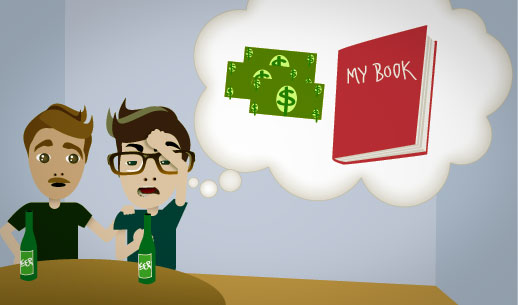“Yeah, well hindsight is 20/20.”
Your friend is upset because he fell for a scam and lost $4000 dollars. He's angry with himself because he thinks he should have known it was a trick. You agree that he should have known that, but you don't think he should be so angry at himself. You make this to observation.
Yeah, well hindsight is 20/20.
Want Video and Sound? Follow us on YouTube

Hindsight is 20/20.
This is a saying which means that "It's easy to know the right thing to do after something has happened, but it's hard to predict the future."
Let me explain why this phrase has that meaning. First, "hindsight" means "thinking about things after they've happened". You can use it like this:
In hindsight, I realize that she was probably right.
This means that you didn't think she was right in the past, but now that you think back on it you realize that she was right.
"20/20" means "perfect vision". Eye doctors measure people's vision using two numbers. If the first number is low, your vision is good. If it's high, you aren't able to see well. I have 200/20 vision, so I really need to wear my glasses. But 20/20 is the lowest score and means that you're able to see perfectly. "20/20" is pronounced "twenty twenty".
So when you put those together, "Hindsight is 20/20" means that you can easily tell what you should have done in the past, but it's harder to decide what to do in the future.
When people use this phrase, they usually want to express one of these ideas:
- You shouldn't worry about your past decisions, because you can't change them now.
- Don't criticize what I did, because I made the best decision I could at that time.
Yeah, well (sentence)
This phrase is a way of agreeing while also disagreeing. When you say "Yeah, well...", it means that you can't disagree with the actual statement that someone just made, but you don't agree with their overall idea. For example:
A: I beat you!
B: Yeah, well, I'll get you next time.
